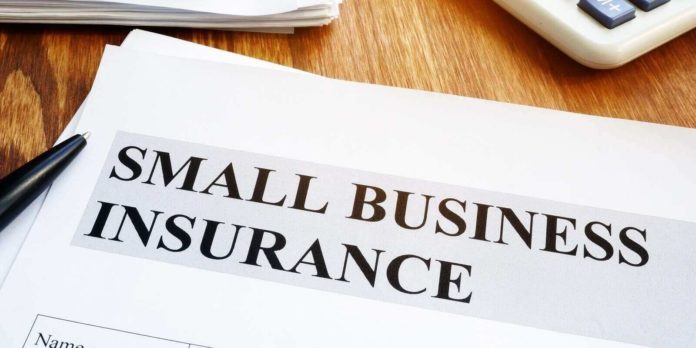Interested in learning small business insurance ?In this article, we will highlight the need of small business insurances in our daily life. Businesses require business insurance to aid with the costs of liability and property damage claims. Without business insurance, business owners could be forced to cover expensive damages and legal claims made against their organization out of pocket. This could be a financially disastrous situation for business owners, depending on the incidence. Certain types of business insurance are mandated in some states for firms.
Types Of Small Business Insurances
Following are the basic types of small business insurance.
What type of Insurance do Small Businesses need?
Is Business Insurance Necessary?
A business owner’s policy is necessary for the majority of small firms (BOP). A BOP is a single policy that covers property, business liability, and business income insurance. The physical site of your company and its assets are protected by commercial property insurance, often known as business property insurance.
The costs of liability claims brought against your company are assisted by general liability insurance, often known as commercial liability insurance. A client might file a lawsuit against your firm, for instance, if he trips and hurts himself while on your property. The costs of that claim may be partially covered by business liability insurance.
When a covered loss prevents your business from operating, business income insurance helps replace lost revenue. This is a terrific approach to make sure you can continue making payroll and paying your bills while your firm is temporarily shut down. Imagine, for instance, that a fire ruins your place of business, forcing it to close while repairs are made. Insurance for business revenue might assist in making up missed wages while repairs are being completed.
Additionally, there are a few situations in which certain states mandate the purchase of company insurance. Most states require that companies with employees:
- Insurance for workers’ compensation
- Insurance for the unemployed
- Disability protection
Those’ compensation offers financial assistance to workers who cannot do their work due to a sickness or accident sustained on the job. Workers’ compensation insurance, for instance, can assist in paying for medical expenses if an employee injures their back while carrying a large piece of machinery.
For employees who lose the jobs, unemployment insurance offers benefits.
Is Commercial Insurance Necessary?
Is company insurance necessary, you might be wondering as a business owner. The quick response is no. There are numerous possibilities for company insurance. When faced with a claim or lawsuit against the company or its employees, a catastrophic natural disaster, or both, they are available to business owners.
A certain level of insurance, such as workers’ compensation insurance, is required to be held for employees working under your firm in practically every state. Theft, lost wages due to injured employees, and other dangers are covered by a business insurance policy. If your company doesn’t have business insurance, you might have to pay out of cash. If you don’t have the money, this might even entirely kill your firm.
What regulations govern small business insurance in your state, then? Most states mandate workers compensation and unemployment insurance if you have employees. You might require disability insurance depending on where your firm is located. A tool for business owners to protect themselves and their assets in the event of an unforeseen occurrence is business insurance.
Why Should Businesses Insure? Needs Particular to Your Business
Business owners may customize their insurance protection to match the unique risks that their company faces thanks to the large range of business insurance coverage that are available to them. Consider the crucial components of your business operation that require protection when selecting coverage. These might consist of:
- The nature of your work
- Your actual location
- Property and machinery
- Intangible assets
- Customers and employees
Remember that when your company expands, your coverage requirements might also alter.
Also keep in mind that organizations in various industries require specialized business insurance coverage to help with their particular requirements.
Insurance Requirements for Arborists and Landscapers
Consider purchasing Business Income Extension for Off-Premises Operations if you work in landscaping or arboriculture. In the event that your company is unable to operate as a result of job site equipment damage, this coverage may be able to help recover lost income. Additionally, landscapers might think about purchasing pesticide and herbicide insurance. This can assist in defraying expenses related to contamination brought on by the usage of pesticides or herbicides.
Insurance Requirements for Real Estate Companies
Most likely, real estate enterprises will require commercial auto insurance. In the event that a worker is involved in an accident while driving for work, this coverage may assist defray the costs. Employee benefits liability (EBL) and employment practices liability (EPL) insurance are both advantageous to real estate businesses.
EPL can assist in paying the fees associated with a claim of improper termination, discrimination, harassment, or other employment-related concern.
EBL assists in defraying the costs associated with claims that your business made mistakes or omitted to take certain actions when administering your employee benefits programme.
Needs for Insurance in Retail Businesses
The addition of Business Income from Dependent Properties and Franchise Upgrade coverage is advantageous for retail firms. If a third party on which your business depends causes your store to lose customers, business income from dependent properties might help replace the loss of sales. For instance, if the manufacturer of a product you sell suddenly goes out of business and is unable to fulfil your order, you can lose business. This kind of business income dependent properties coverage may be able to help you replace the revenue you lost as a result, depending on the cause of the shutdown.
After an accident that is covered by the coverage, a retail outlet should be upgraded to comply with franchise standards.

